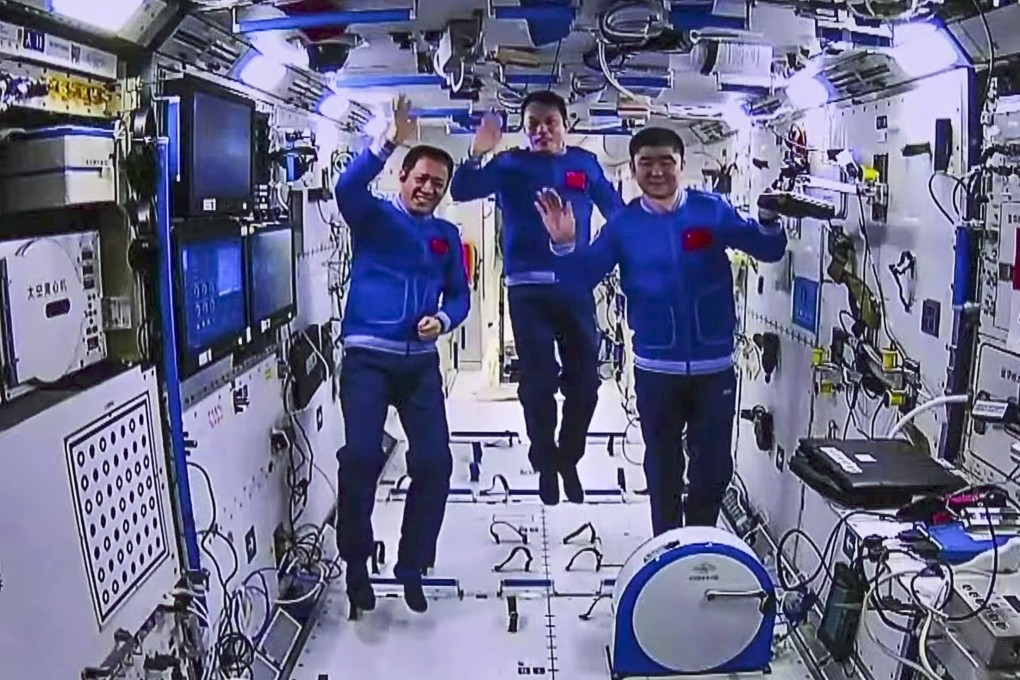Hong Kong students have out-of-this-world conversation with Chinese astronauts orbiting in space station
- Extraterrestrial chat with astronauts Nie Haisheng, Liu Boming and Tang Hongbo – currently aboard the Tiangong space station – highlight of 80-minute seminar
- Event is ‘the central government’s special gift’ to Hong Kong, says liaison office deputy director Tan Tieniu

More than 200 university students and secondary school pupils in Hong Kong were given a once-in-a-blue-moon chance on Friday to chat with three mainland Chinese astronauts orbiting Earth aboard the national Tiangong space station.
The extraterrestrial exchange, arranged by Beijing for Hong Kong amid overwhelming demand on the mainland for such an opportunity, underscored the central government’s ongoing efforts to instil a sense of national identity and patriotism among the city’s youth.
It began with astronaut Liu Boming providing his enraptured audience with a first-hand look at life in space, including the contents of the module’s mini-fridge stocked with food items.
“We don’t want to eat the apples, we just want to open this drawer so that the fragrance of the fruits can enrich our module,” Liu said.
He also showed the audience at the Hong Kong Convention and Exhibition Centre in Wan Chai the crew’s sleeping arrangements, a family photo, a drawing he had done, and a glimpse of their home planet from the window.
“Each of us brought along one family photo. This is a painting that I drew after two spacewalks. It also shows how I felt after the spacewalks. I prepared it for the children in Hong Kong,” he said.